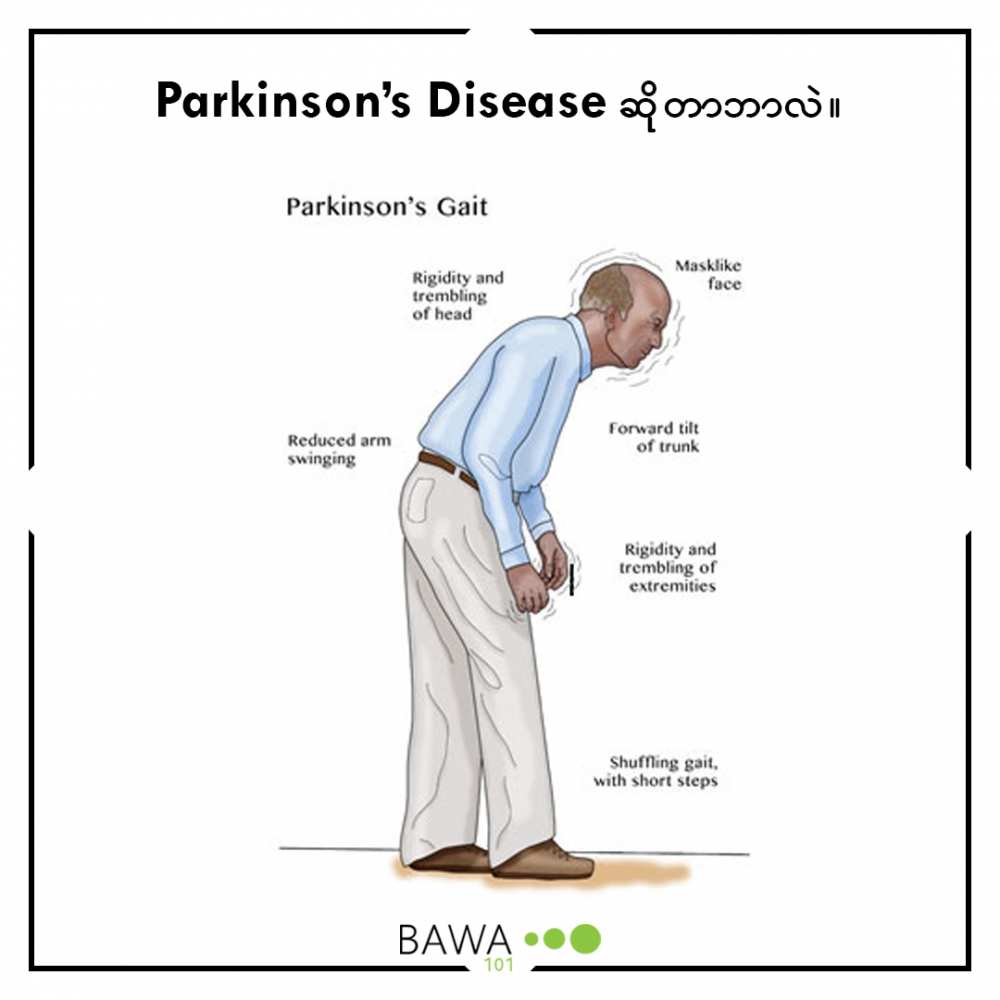What is Parkinson's Disease?
"Those over 60 years of age are more prone to the disease. But it also happens to young people. Boys...
"Those over 60 years of age are more prone to the disease. But it also happens to young people. Boys are more common than girls. You can avoid the dangers and control the disease. You should consult your doctor for details.
The symptoms of Parkinson's disease are:
They cannot be different from each other. The symptoms that can be noticed
- Trembling when your hands and fingers are still.
- Parkinson's disease slows down your movements and makes even normal tasks difficult and time consuming. Difficulty taking steps when walking or getting up from a sitting position.
- Stiff muscles in any part of the body, making it difficult to move. being in pain
- Imbalance in body shape,
- Movements that do not need to be controlled by the mind, such as blinking. smiling Hand over while walking
- Being soft in speaking, being fast, Hesitating before speaking When speaking, the tone of voice is the same;
- Difficulty in writing;
Other symptoms may also be present. You should consult your doctor for details.
The cause of Parkinson's disease is not yet known. Studies and experiments are still being conducted. Possible causes are......
- Genetics. Researchers say genetic changes cause Parkinson's disease. There are many genetic changes that increase the risk of developing Parkinson's disease.
- Toxins and many other environmental conditions increase the risk of disease. The rate is low.
- The presence of Lewy bodies and A-synuclein in brain cells, which cause disease.
Things that make Parkinson's disease worse are..
- Age. Young people are less likely to get sick. From middle age to old age, the risk of disease increases. The disease starts to occur in people aged 60 or 60 and above.
– Genetics. If you are related to someone with Parkinson's disease, you are more likely to develop the disease. Although there are many people of your kind who have parkinson's disease, you have a low risk of developing the disease.
- Males are more susceptible to the disease than females.
- Exposure to pesticides and herbicides also increases the risk of disease.
Without the above mentioned factors, you cannot say that you do not have this disease. The above points are only references. It is best to consult a doctor for details.
There are no specific tests to diagnose the disease. your health history; Depending on the symptoms, the doctor will perform a neurological and physical exam.
They will also do tests, such as blood tests, to find out what conditions are causing your symptoms. MRI scan Brain ultrasound SPETC and PET scans will be used to look for other diseases.
Sometimes the diagnosis of Parkinson's disease takes a long time. Doctors will see you regularly with neurologists and neurologists to find out about your condition and symptoms and test for parkinson's disease.
Parkinson's disease cannot be cured. However, medications can relieve your symptoms. In the latter cases, surgery is recommended. Movement and feet It will relieve problems such as hand tremors. These treatments increase dopamine.
After treatment, your symptoms will improve significantly. Sometimes, the symptoms are well controlled, but the medicine does not work.
By doing the following things, you can reduce the disease in your daily life.
- Healthy food. Some foods can relieve symptoms. For example, eating high-fiber foods and drinking enough water can help prevent constipation, which is common in Parkinson's disease. A balanced diet provides a type of fat called Omega 3, which is beneficial for people with Parkinson's disease.
- Exercising also makes the muscles strong and flexible and balances them. Parkinson's disease makes the muscles unbalanced and makes it difficult to walk. Keeps away from depression.
- To prevent falling
Your body weight should be balanced on both legs. You should not carry things or walk backwards while walking.
- Daily activities such as dressing, eating, Bathing and writing can be difficult for people with the disease.
If you want to know more details, If you have any questions about the disease, you should consult your doctor in detail.
This article was read and quoted from hellosayarwon.com."
The symptoms of Parkinson's disease are:
They cannot be different from each other. The symptoms that can be noticed
- Trembling when your hands and fingers are still.
- Parkinson's disease slows down your movements and makes even normal tasks difficult and time consuming. Difficulty taking steps when walking or getting up from a sitting position.
- Stiff muscles in any part of the body, making it difficult to move. being in pain
- Imbalance in body shape,
- Movements that do not need to be controlled by the mind, such as blinking. smiling Hand over while walking
- Being soft in speaking, being fast, Hesitating before speaking When speaking, the tone of voice is the same;
- Difficulty in writing;
Other symptoms may also be present. You should consult your doctor for details.
The cause of Parkinson's disease is not yet known. Studies and experiments are still being conducted. Possible causes are......
- Genetics. Researchers say genetic changes cause Parkinson's disease. There are many genetic changes that increase the risk of developing Parkinson's disease.
- Toxins and many other environmental conditions increase the risk of disease. The rate is low.
- The presence of Lewy bodies and A-synuclein in brain cells, which cause disease.
Things that make Parkinson's disease worse are..
- Age. Young people are less likely to get sick. From middle age to old age, the risk of disease increases. The disease starts to occur in people aged 60 or 60 and above.
– Genetics. If you are related to someone with Parkinson's disease, you are more likely to develop the disease. Although there are many people of your kind who have parkinson's disease, you have a low risk of developing the disease.
- Males are more susceptible to the disease than females.
- Exposure to pesticides and herbicides also increases the risk of disease.
Without the above mentioned factors, you cannot say that you do not have this disease. The above points are only references. It is best to consult a doctor for details.
There are no specific tests to diagnose the disease. your health history; Depending on the symptoms, the doctor will perform a neurological and physical exam.
They will also do tests, such as blood tests, to find out what conditions are causing your symptoms. MRI scan Brain ultrasound SPETC and PET scans will be used to look for other diseases.
Sometimes the diagnosis of Parkinson's disease takes a long time. Doctors will see you regularly with neurologists and neurologists to find out about your condition and symptoms and test for parkinson's disease.
Parkinson's disease cannot be cured. However, medications can relieve your symptoms. In the latter cases, surgery is recommended. Movement and feet It will relieve problems such as hand tremors. These treatments increase dopamine.
After treatment, your symptoms will improve significantly. Sometimes, the symptoms are well controlled, but the medicine does not work.
By doing the following things, you can reduce the disease in your daily life.
- Healthy food. Some foods can relieve symptoms. For example, eating high-fiber foods and drinking enough water can help prevent constipation, which is common in Parkinson's disease. A balanced diet provides a type of fat called Omega 3, which is beneficial for people with Parkinson's disease.
- Exercising also makes the muscles strong and flexible and balances them. Parkinson's disease makes the muscles unbalanced and makes it difficult to walk. Keeps away from depression.
- To prevent falling
Your body weight should be balanced on both legs. You should not carry things or walk backwards while walking.
- Daily activities such as dressing, eating, Bathing and writing can be difficult for people with the disease.
If you want to know more details, If you have any questions about the disease, you should consult your doctor in detail.
This article was read and quoted from hellosayarwon.com."





